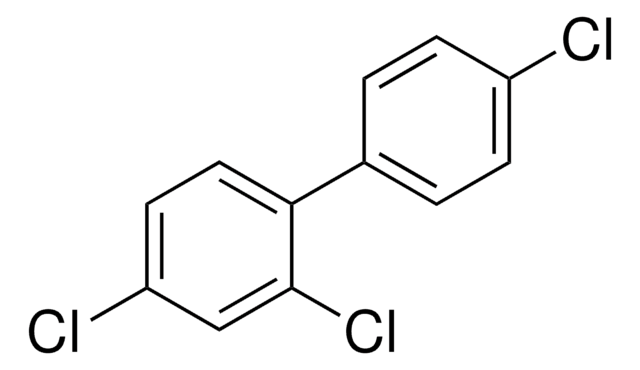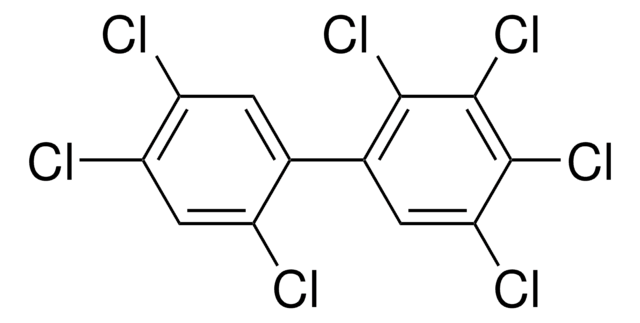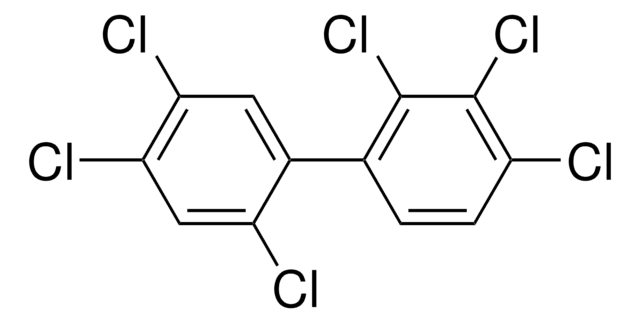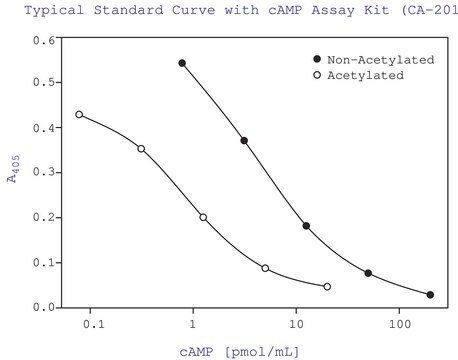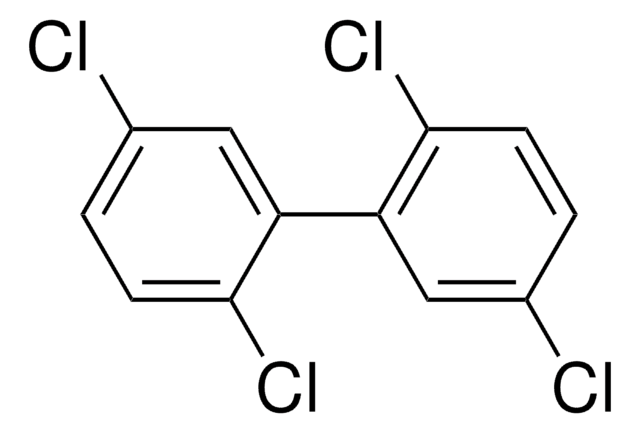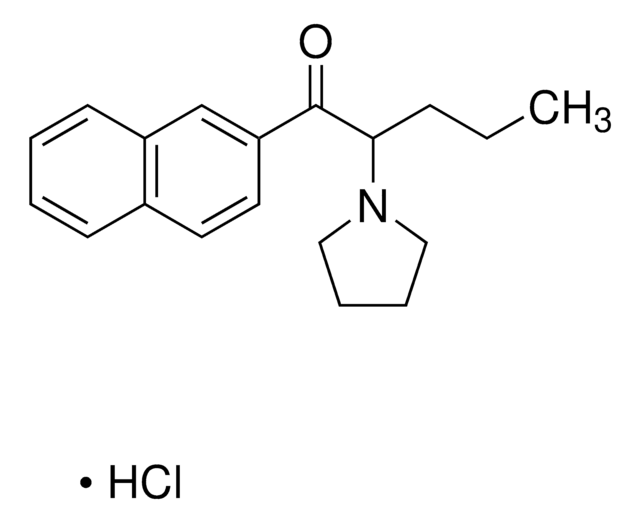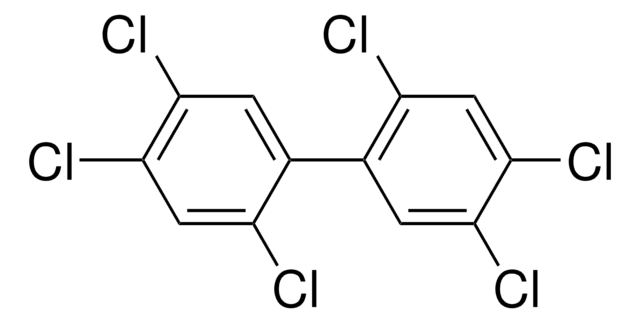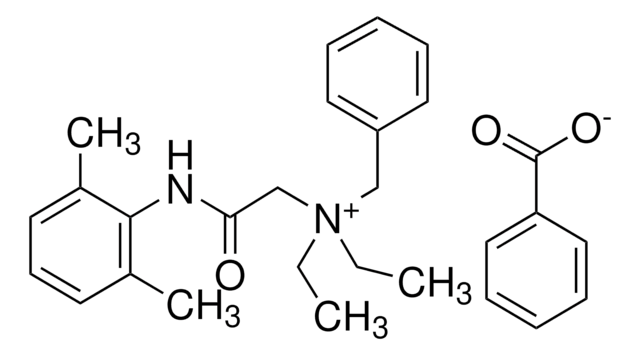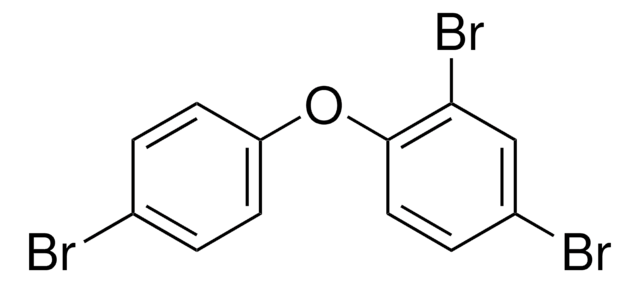36900
PCB No 28 solution
10 μg/mL in isooctane, analytical standard
Synonym(s):
2,4,4′-Trichlorobiphenyl solution, 2,4,4′-PCB
About This Item
Recommended Products
grade
analytical standard
Quality Level
shelf life
limited shelf life, expiry date on the label
concentration
10 μg/mL in isooctane
application(s)
environmental
format
single component solution
storage temp.
2-8°C
SMILES string
Clc1ccc(cc1)-c2ccc(Cl)cc2Cl
InChI
1S/C12H7Cl3/c13-9-3-1-8(2-4-9)11-6-5-10(14)7-12(11)15/h1-7H
InChI key
BZTYNSQSZHARAZ-UHFFFAOYSA-N
General description
Application
signalword
Danger
Hazard Classifications
Aquatic Acute 1 - Aquatic Chronic 1 - Asp. Tox. 1 - Flam. Liq. 2 - Skin Irrit. 2 - STOT RE 2 - STOT SE 3
target_organs
Central nervous system
Storage Class
3 - Flammable liquids
wgk_germany
WGK 2
flash_point_f
39.2 °F
flash_point_c
4 °C
ppe
Eyeshields, Faceshields, Gloves, type ABEK (EN14387) respirator filter
Certificates of Analysis (COA)
Search for Certificates of Analysis (COA) by entering the products Lot/Batch Number. Lot and Batch Numbers can be found on a product’s label following the words ‘Lot’ or ‘Batch’.
Already Own This Product?
Find documentation for the products that you have recently purchased in the Document Library.
Our team of scientists has experience in all areas of research including Life Science, Material Science, Chemical Synthesis, Chromatography, Analytical and many others.
Contact Technical Service